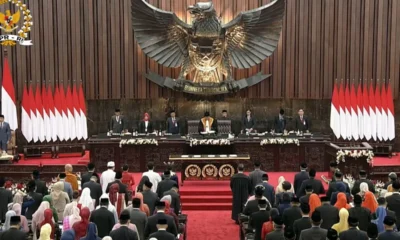Forgotten Dairies
I Am An Officer, I Have Integrity”: Lt. Yerima’s Subtle Rebuke To Nigeria’s Politicians -By Isaac Asabor
When history remembers this moment, it will not recall Wike’s anger, it will remember Yerima’s restraint. It will remember how one officer, with calm conviction, spoke for millions of Nigerians tired of arrogance in leadership. His words will echo as a challenge to all who hold office: serve with humility, lead with honor, and never forget that public trust is a privilege, not a throne.

When a naval officer, Lieutenant Yerima, calmly told Nyesom Wike, Minister of the Federal Capital Territory, “I am an officer, I have integrity,” his words went beyond self-defense. They pierced through the arrogance and entitlement that have long plagued Nigeria’s political class. It was more than a response to provocation, it was a moral verdict delivered in uniform.
That single sentence drew a sharp line between two worlds: one guided by discipline, ethics, and service, and another driven by ego, power, and self-importance. Yerima’s statement, reportedly made during an altercation with Wike, instantly captured public attention. It was short, simple, and piercing, yet it symbolized a powerful rebuke of a political culture steeped in pride and impunity.
Wike, known for his fiery temperament and confrontational style, has often projected himself as a strong man in politics. From his years as governor of Rivers State to his current position as FCT Minister, he has rarely shied away from confrontation. But this time, his attempt to assert authority over a naval officer backfired. Instead of fear, he met calm defiance; instead of submission, he encountered moral strength.
Yerima’s reply was not insubordination; it was integrity speaking truth to power. His composed response embodied the discipline of the military and the dignity of self-respect. It also reminded Nigeria’s political officeholders that respect cannot be demanded, it must be earned.
In a country where arrogance has become the language of public office, Yerima’s words struck a national chord. They exposed the rot in Nigeria’s leadership culture, one that thrives on intimidation, bullying, and the notorious “Do you know who I am?” syndrome that defines how many politicians relate with citizens and subordinates alike.
That phrase,“Do you know who I am?”, has become the anthem of entitlement across Nigeria’s political and bureaucratic space. It is a phrase that drips with arrogance and insecurity, often uttered by those whose power depends more on position than performance. It reflects a warped mentality that equates authority with superiority, a mindset that has done more harm to governance than corruption itself.
Lt. Yerima’s calm defiance dismantled that illusion. In choosing integrity over intimidation, he became a metaphor for what Nigeria desperately needs: public officials, who understand that humility is not weakness, and that true leadership is measured by restraint, not rage.
It is time for public officials, particularly political appointees, to learn that humility enhances authority. No one is diminished by showing respect; rather, they gain credibility. The arrogance that often accompanies political appointments has alienated citizens and made public service synonymous with self-interest. A minister, governor, or special adviser who talks down to others or brandishes power like a weapon only exposes his own moral emptiness.
Leadership, in its purest form, is service. It requires patience, empathy, and emotional intelligence. But in Nigeria, far too many public servants behave like emperors, demanding reverence while doing little to deserve it. The “Do you know who I am?” mentality is not just rude, it is dangerous. It erodes the spirit of service and replaces it with vanity.
Lt. Yerima’s composure should be a mirror for those who wield political power. His calm restraint was not an act of defiance; it was an act of character. It showed that integrity can silence arrogance more effectively than confrontation ever could. When he said, “I am an officer, I have integrity,” he was not only defending himself, he was defending a moral order that politicians have long abandoned.
Every public official in Nigeria should take a cue from that moment. Power is transient. Titles change. But integrity endures. Wike’s altercation with the officer should remind the political class that leadership is not about theatrics or dominance; it is about accountability and humility. Public office is a temporary trust, not a personal empire.
What the nation witnessed in that brief exchange was a clash between two definitions of power: one anchored in moral discipline and the other rooted in entitlement. Yerima represented the kind of leadership Nigeria desperately needs, one that serves with honor and speaks with civility. Wike, on the other hand, embodied the arrogance that has crippled public administration and alienated the government from the governed.
Politicians and appointees must begin to understand that respect is not a function of title or proximity to power. It is a reward for character. The sooner Nigeria’s political leaders embrace humility, the sooner governance will regain its humanity. The average Nigerian does not despise authority; they despise arrogance.
It is no coincidence that Yerima’s words resonated so widely across social media and public discussions. Nigerians saw in him what they have long yearned for, a public servant who stands for principle without theatrics. In a nation drowning in hypocrisy, his integrity shone like a lighthouse.
The lesson from that encounter is timeless: public service is not about asserting status but about embodying values. Every officeholder, from the president to the lowest appointee, must realize that power without humility is tyranny, and authority without respect is hollow.
Lt. Yerima’s statement,“I am an officer, I have integrity”, should not fade with the news cycle. It should become a moral compass for Nigeria’s political class. It reminds us that a nation’s greatness is not built on titles, but on truth; not on power, but on principle.
When history remembers this moment, it will not recall Wike’s anger, it will remember Yerima’s restraint. It will remember how one officer, with calm conviction, spoke for millions of Nigerians tired of arrogance in leadership. His words will echo as a challenge to all who hold office: serve with humility, lead with honor, and never forget that public trust is a privilege, not a throne.
In essence, Lt. Yerima told the political elite what they have long refused to hear, “that integrity commands more respect than intimidation. Titles fade, offices expire, but character endures.”




























